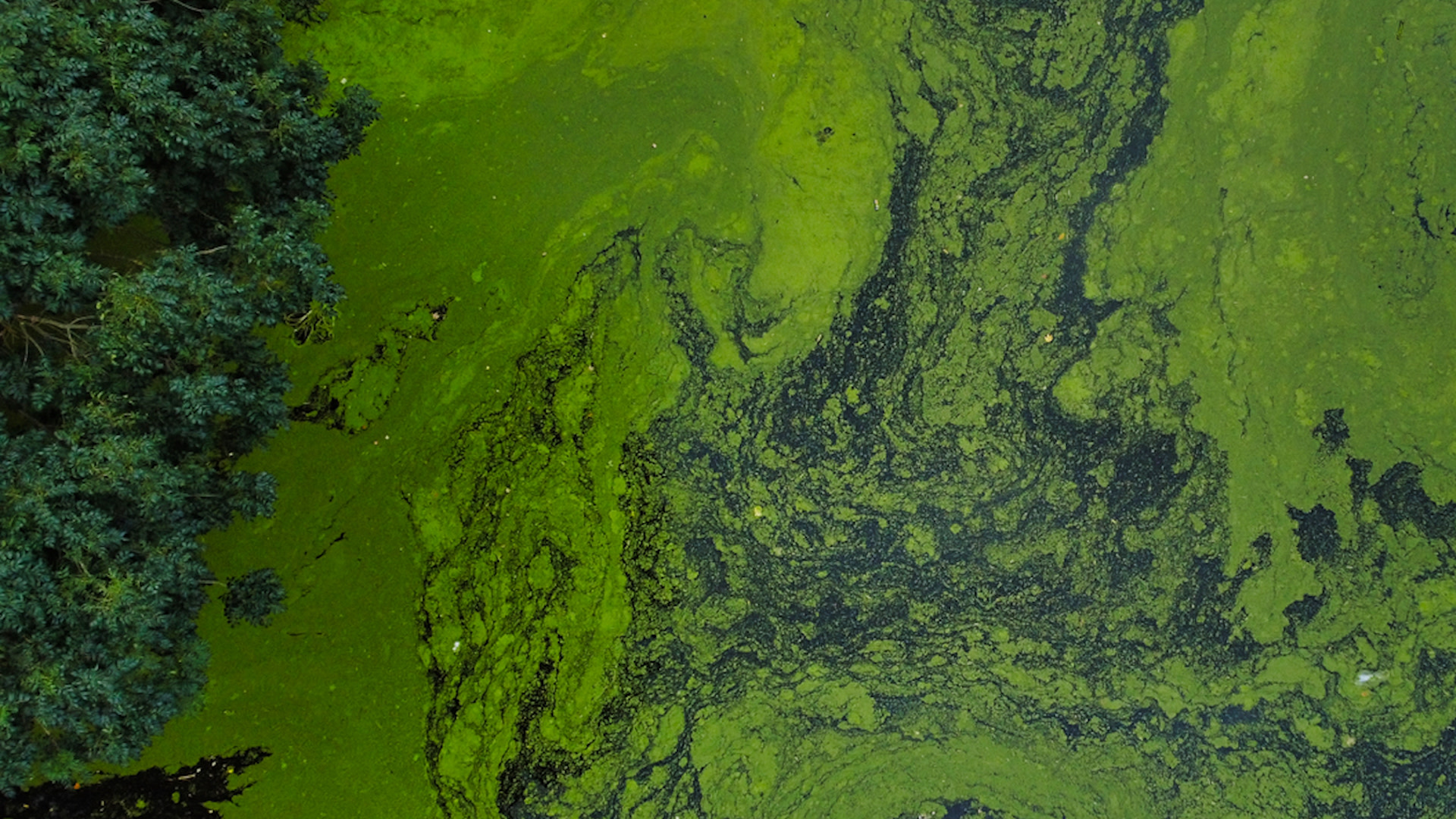A layer of toxic, scummy algae on top of a crystal-clear pond may not seem like a sewage problem — but in Cape Cod, it is.
What's happening?
Over the years, millions of visitors and residents on the Cape have generated wastewater that has flowed into septic tanks, as reported by Boston public radio station WBUR. Those tanks leach the water back out into the ground. And now, an excess of accumulated wastewater, rich with nitrogen and phosphorus, is feeding dangerous levels of toxic algal blooms in the Cape's waterways.
Andrew Gottlieb, of the Association to Preserve Cape Cod, told WBUR, "People like Cape Cod and want to come to Cape Cod, and to a certain extent, they're loving it to death."
In order to address the issue, Massachusetts introduced strict new regulations on septic systems for Cape communities, per the radio station. But these projects are not going to be cheap.
One town's new treatment plant has a $34 million price tag. Another is spending $54 million on phase one of its plan, and a third is migrating from septic tanks to sewage pipes for an estimated $1.4 billion.
Why is this concerning?
Toxic algal blooms are dangerous to humans, causing everything from mild illness to liver damage and seizures if ingested or inhaled, per the Centers for Disease Control and Prevention. They're equally harmful to animals, particularly the fish and plants in the water.
"We've seen a significant deterioration of our bays to the point where they're designated as impaired, where we don't have shellfish, we don't have finfish," Mark Ells, Barnstable town manager, told WBUR.
Also of concern is that global heating, as the Environmental Protection Agency explained, is compounding the blooms, signaling an even more dangerous future if changes aren't made quickly.
"What do you need to grow plants? Heat and water and nutrients. We've added the nutrients and we're turning up the heat," Gottlieb told WBUR. "So those two things have come together and are really causing problems."
"Most of our own personal financial wellbeing is intimately tied to the Cape continuing to be an attractive place to live," he added. "And so, as individuals we're all at an enormous risk."
What's being done?
Several communities are looking at low-cost ways to filter out groundwater pollution in order to stave off the blooms, including using oyster beds and cranberry bogs, and even experimenting with "pee-cycling" to fertilize crops, as reported by WBUR.
But many concerned residents aren't waiting for slow fixes from local governments. Instead, they're taking solutions into their own hands, installing private septic systems. But this also costs tens of thousands of dollars.
"This is a really expensive process," resident Pat Uhlman told WBUR. "But the Cape economy is still people coming here in the summer. If they can't swim in our ponds, they can't swim in our ocean, they can't boat, there's not going to be any reason for them to come here."
Join our free newsletter for cool news and actionable info that makes it easy to help yourself while helping the planet.









